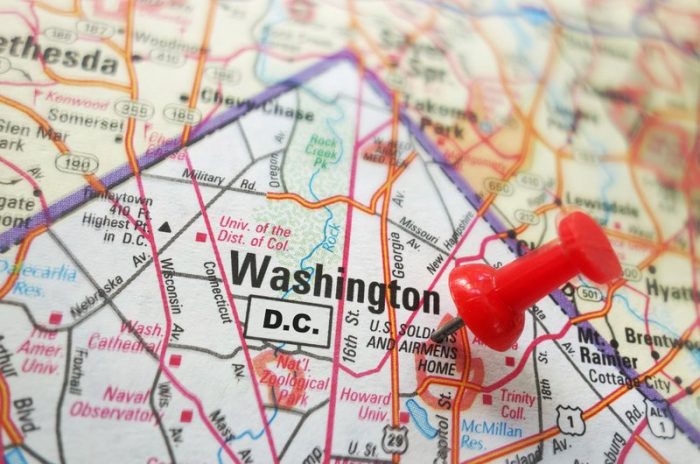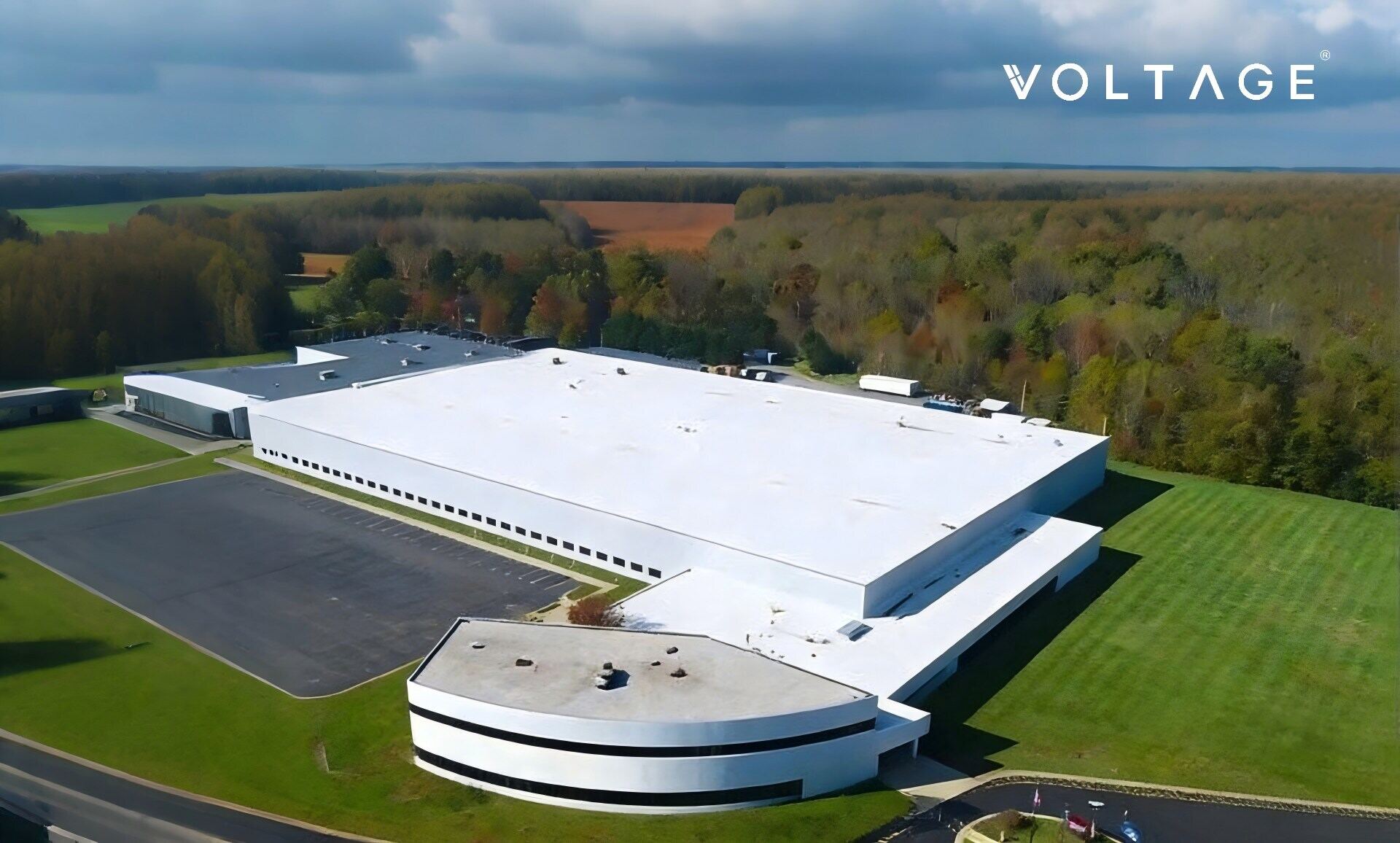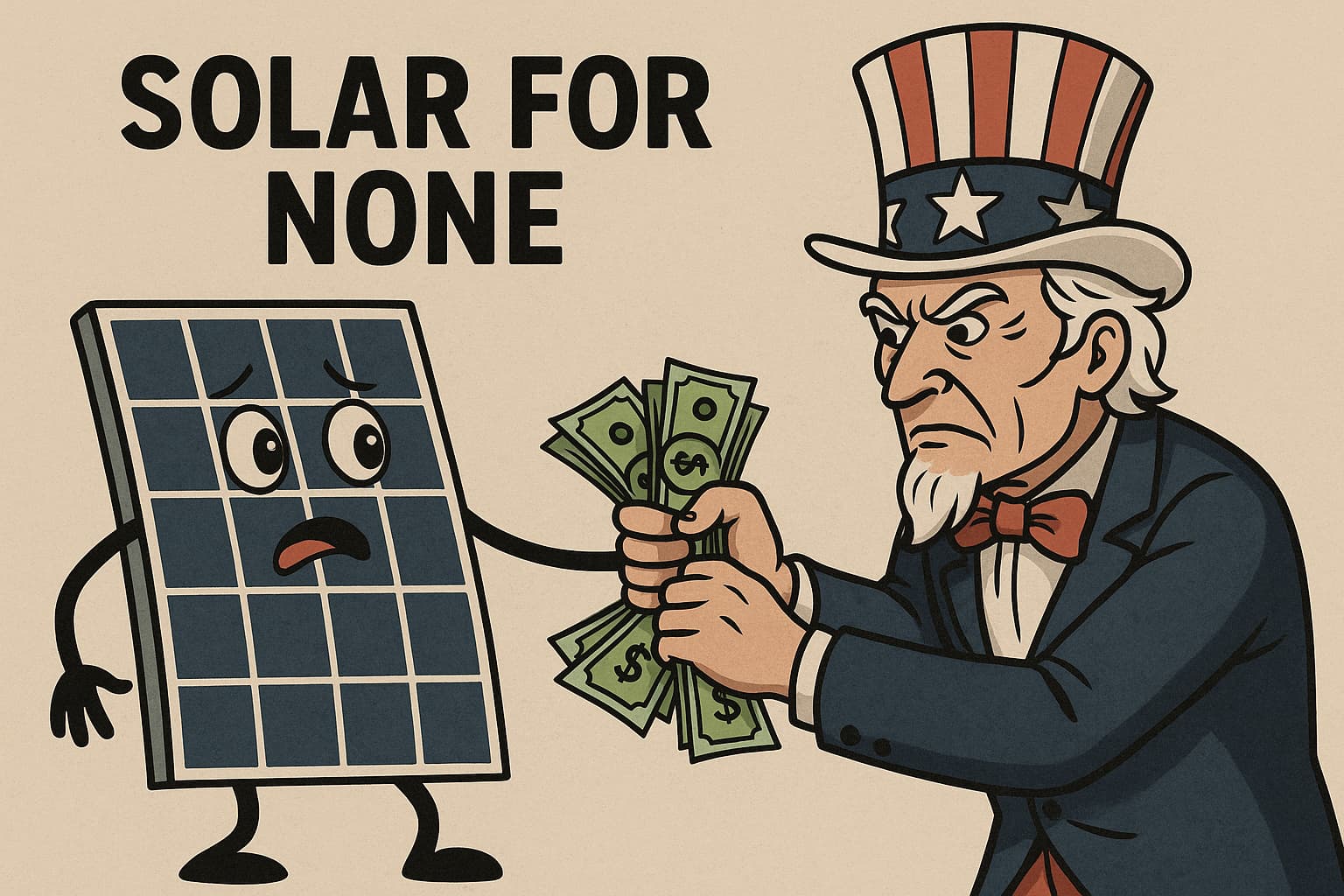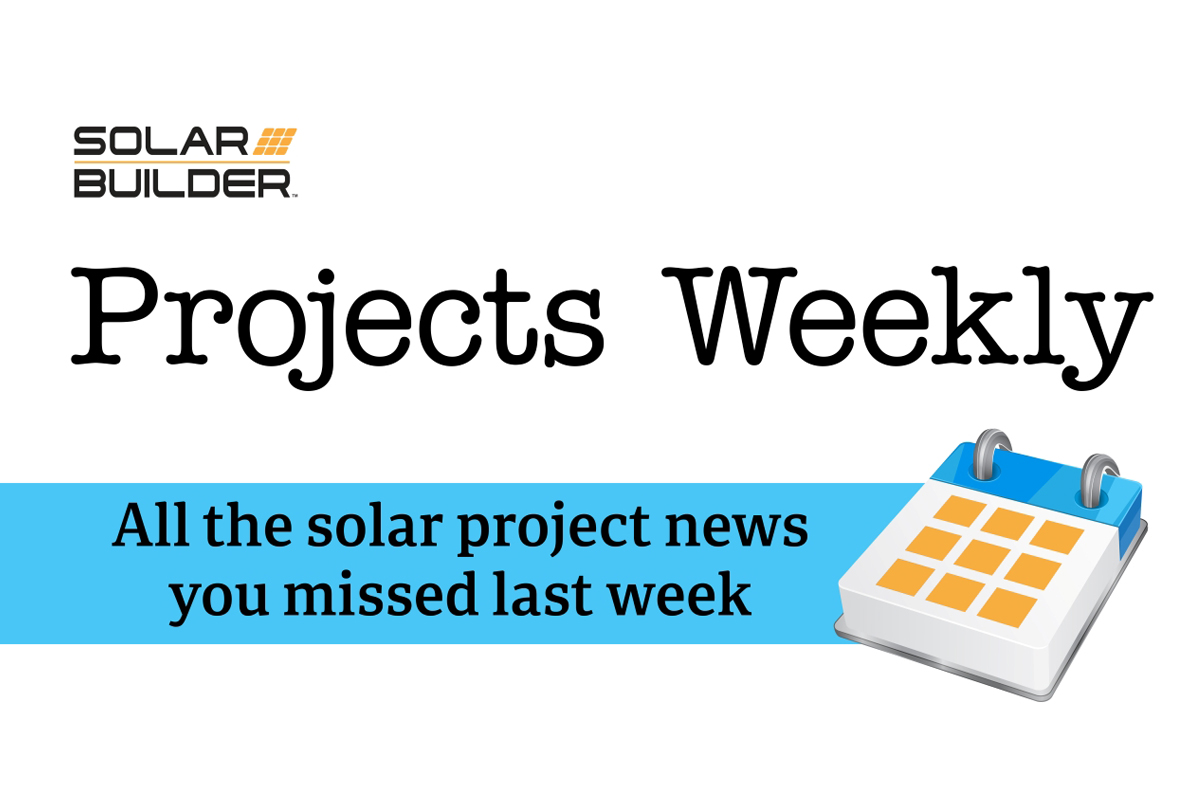Utilities are botching shared solar program in Washington D.C., Virginia

Via Energy News Network: Solar advocates in the nation’s capital and Virginia claim Mid-Atlantic utilities are squandering the promise of shared solar programs designed to benefit low-income customers. District of Columbia officials allege that Pepco’s program for low-income customers has shorted enrollees and the city by as much as $665,000 over the last couple of years. That potential deficit prompted the city attorney general to file a complaint this spring, accusing the investor-owned utility of failing to “properly implement community solar projects.”
Meanwhile, across the Potomac River, Dominion Energy’s continued pursuit of high double-digit fees for two separate shared solar programs in its Virginia territory could put the kibosh on those nascent initiatives by discouraging developers from constructing arrays.
Stephanie Johnson has been tracking these clashes since she was hired as the executive director of CHESSA, the Mid-Atlantic-based Chesapeake Solar & Storage Association, in late February.
“Unfortunately, we fear that if left unchecked, Pepco’s mishandling of the District’s community solar program could send the message to other utilities that they can undermine solar access through death by a thousand cuts,” Johnson said in an interview.
In D.C., ‘enough is enough’
Washington, D.C.’s climate targets include a commitment to halving greenhouse gas emissions below 2006 levels by 2032 and becoming carbon neutral by 2050. Legislation passed in 2013 created a model for community solar projects. Three years later it formed Solar for All, an environmental justice program open to subscribers in low- and moderate-income households.
Roughly 5,000 of the 6,800 households signed up for community solar citywide are enrolled in Solar for All. Its legislative mandate is for 100,000 enrollees to save 50% on their monthly electric bills by 2032.
In the complaint filed against Pepco on March 23, both the D.C. attorney general and the Office of the People’s Counsel allege that “Pepco’s pattern of systemic violations” is undercutting all aspects of community solar by weakening public confidence and causing financial harm.
Violations such as failing to provide promised discounts on energy bills to market-rate and low-income enrollees, not compensating community solar owners and operators, and undercounting energy being generated by the arrays have compromised the District’s ability to meet stringent standards aimed at reducing greenhouse gas emissions.
D.C. officials said they were forced to take legal action after at least 23 meetings with Pepco between July 2020 and February yielded no viable resolutions.
“Enough is enough,” Attorney General Karl Racine said upon filing the petition. “We have heard from numerous D.C. residents who are rightly fed up with Pepco’s seeming inability, intentional or otherwise, to allow for consumer choice and transition to clean energy, as required by law.”
Racine and Sandra Mattavous-Frye, the people’s counsel, are calling for District utility regulators — the three-member Public Service Commission — to investigate the extent of Pepco’s mishandling of community solar projects, force the utility to provide restitution and sanction Pepco for violating District laws.
Additionally, both city offices want the commission to procure an independent third-party audit of Pepco’s metering and crediting processes.
An in-depth investigation, they said, is needed to figure out who was shorted and by how much.
Pepco, short for Potomac Electric Power Co., was purchased by Exelon in 2016. The company responded only broadly to specific questions from the Energy News Network about the complaint.
“We take the issues alleged in the filing … seriously, and we are reviewing the specific claims raised in the complaint,” said Pepco spokesperson Addie Kauzlarich.
She said the utility would be responding to the Public Service Commission on or before May 9.
While noting that Pepco played “an important role in helping to connect our customers to community solar options,” she offered no specific remedies to the persistent issues laid out in the complaint.
More vaguely, she said via email that the utility is “committed to identifying innovative solutions to help more customers connect their [distributed energy resources], such as solar, with Pepco’s system and to further enhance the solar customer experience.”
Initially, the attorney general gave Pepco 10 days to respond to the petition. However, the Public Service Commission granted Pepco a deadline extension.
Such leniency feeds into fears of local observers that Pepco will avoid harsh punishment because of a traditional cozy relationship between regulators and the utility. The commission did not respond to a request for comment.
“The petition won’t fall by the wayside,” CHESSA’s Johnson said. “But the next steps hinge on the May 9 Pepco response.”
Johnson said she is hopeful regulators will proceed with the audit. She added that the city offices involved have “additional options to pursue” if the commission fails to “pursue the audit, investigation and holding Pepco accountable for their mismanagement of the Solar for All program.”
District solar advocates say they are not shocked by Pepco’s fumbling of community solar. They point to a November 2020 document in which Pepco outlined to utility regulators how it was better suited to manage and put into place community solar and other distributed energy resources.
“We believe they have chosen to intentionally undermine the program after being denied the opportunity to expand their monopoly to include community solar in the District,” Johnson said.
Page 17 of the Pepco document stated that “To accelerate clean energy deployment in the District, the Commission should consider allowing Pepco to procure, own, and deploy various [distributed energy resources] that could include investments, such as community solar projects, that support the distribution system.”
It goes on to state that such an arrangement would not only rapidly develop renewable generation facilities in the city, but also provide greater access to low- and moderate-income customers.
“Cities and states around the nation have found that utilities have a direct role in [distributed energy resource] development to achieve the ambitious clean energy goals and ensure that all customers at various income levels are able to participate and benefit.”
Eager to expand in Virginia
The fate of the Virginia shared solar provisions — one geared for single-family homes, the other for duplexes, apartments and condominiums — is in the hands of the State Corporation Commission as utility regulators are tasked with setting minimum charges as well as administrative fees for enrollees. Rulings could come any day.
Silver Spring, Maryland-based Neighborhood Sun is one of a handful of regional solar companies that is participating in the District’s community solar program and is also eager to expand into Virginia’s shared solar market, if the price is right.
“Virginia could have a thriving market for community solar because plenty of developers are looking for opportunities there,” said Armando Gaetaniello, vice president of business development. “One of the biggest hurdles is the minimum bill Dominion wants to include. We’ll see how that plays out.”
He’s referring to Senate Bill 629, signed into law in 2020 by former Gov. Ralph Northam, a Democrat, and set to go into effect next year.
That residential shared solar legislation included the ability for utility regulators to set what’s called a minimum monthly fee — a fixed-cost charge to subscribers — to account for the costs of implementing the program and for use of the utility’s grid infrastructure.
The Virginia commission rocked solar advocates in mid-February when a hearing examiner recommended that Dominion would be within its bounds to charge shared solar customers a $55 monthly minimum fee. It’s a volumetric fee, based on a 1,000-kilowatt-hour subscription by a residential customer.
On top of that charge, Dominion also has stated that it would need to tack on a monthly administrative fee, which the utility has estimated could be in the $10 to $20 range.
Low-income participants would not be saddled with the minimum or administrative fees, no matter their collective cost.
Despite that, solar companies say double-digit extra fees that are as large as an average household’s electric bill will discourage market-rate subscribers from signing up.
Why, developers ask, should they risk constructing what likely would be an orphaned array?
“The whole purpose of community solar is to make it accessible and equitable, and to have people transition away from fossil fuels,” Gaetaniello said. “Otherwise, you would have to be a super-privileged household to pay for it. Solar will be an exclusive product that doesn’t work for the masses.”
If community solar proceeds in Virginia, it’s timed to roll out with Dominion’s unveiling of a new customer information system in 2023. It’s designed to accommodate shared solar billing.
What’s at stake
Alexandra Fisher, a D.C. Department of Energy and Environment policy analyst, said that her agency conducted an internal audit of community solar billing after receiving complaints from Solar for All enrollees. That audit was incomplete because her team didn’t have access to complete data sets, she testified.
However, the audit raised serious concerns within the department that Pepco’s billing and other community renewable energy facility practices are out of compliance with multiple statutes and Public Service Commission regulations, Fisher said in her affidavit included in the complaint.
In the filing, the Department of Energy and Environment estimated that Pepco undercounted Solar for All generation by 5,000 megawatt-hours between January 2020 and September 2021. That translates to 5 million kilowatt-hours, the units that utilities use for billing.
The “dollar value” of that 5 million kWh figure — the roughly $665,000 cited by District officials — is calculated by multiplying it by the residential retail rate for renewable electricity in the District, which has consistently hovered close to 13 cents per kWh.
Pepco’s consistent failure to apply credits on electric bills in a timely and accurate manner has a ripple effect on the District’s community solar program.
- If the solar farms are fully subscribed each month, it’s Solar for All enrollees who are directly shorted.
- If those farms aren’t fully subscribed, the city loses out. That’s because District law requires Pepco to pay the subscriber organization — in this case, the Department of Energy and Environment — for any unsubscribed energy. When Pepco doesn’t pay, the department is shorted money it would reinvest into Solar for All.
These discrepancies are especially detrimental to low-income enrollees because they tend to have higher energy burdens and are more likely subject to the threat of power disconnection if their credits are misapplied.
“Understandably, these incorrect bills cause anxiety for consumers and undermine their faith in community solar programs,” CHESSA’s Johnson said.
A third-party audit also would clarify what effect Pepco’s billing methods had on D.C. residents who enrolled in the market-rate community solar program and the companies that offered the subscriptions.
Shared solar on Biden’s radar
In early October, the U.S. Department of Energy said it wants to enable community solar systems nationwide to power the equivalent of 5 million households by 2025, creating $1 billion in energy bill savings. That milestone would help the Biden administration achieve its target of a decarbonized grid by 2035.
At the state level, shared solar also can play a significant role in curbing emissions of carbon dioxide and other heat-trapping gases.
For instance, the 2020 Virginia Clean Economy Act replaced the state’s voluntary renewable portfolio standard with a mandatory one. Dominion is required to achieve a carbon-free grid by 2045 and Appalachian Power, the state’s smaller investor-owned utility, must follow suit by 2050. The act includes multiple other carbon-cutting provisions.
Gaetaniello, of Neighborhood Sun, noted that there’s nothing inherently wrong with the design of the District’s shared solar program, which is why his company branched into the city with two arrays totaling 97 kW.
However, he said, the lack of transparency from Pepco means that managing small installations serving about 20 solar customers has become a time-consuming headache.
CHESSA’s Johnson is hopeful city watchdog agencies can right what’s broken with Pepco’s handling of community solar so D.C.’s program can be a beacon for the Mid-Atlantic region.
“I find it encouraging that the attorney general and the people’s counsel are investigating this,” Johnson said. “I do think utilities watch what other utilities do.
“If it’s undermined in the District, then it could undermine the ability for community solar to take hold in Virginia. It’s our job to get ahead of these issues.”
ELIZABETH MCGOWAN is a longtime energy and environment reporter who has worked for InsideClimate News, Energy Intelligence and Crain Communications. Her groundbreaking dispatches for InsideClimate News from Kalamazoo, Michigan, “The Dilbit Disaster: Inside the Biggest Oil Spill You Never Heard Of” won a Pulitzer Prize for National Reporting in 2013. Her book, “Outpedaling ‘The Big C’: My Healing Cycle Across America” is available from Bancroft Press. Based in Washington, D.C., Elizabeth covers the state of Virginia.





Comments are closed here.